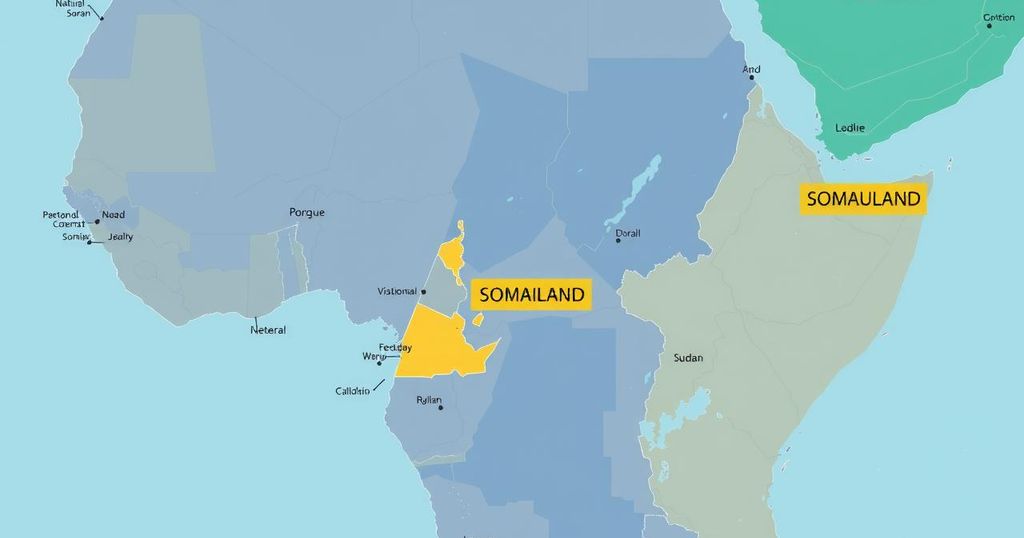The US and Israel are in talks with Sudan, Somalia, and Somaliland about relocating Palestinians from Gaza under President Trump’s plan. However, Sudan has rejected the proposal, with Somalia and Somaliland officials unaware of any discussions. The controversial idea faces substantial opposition from Palestinians and Arab nations, raising serious legal and moral concerns.
The United States and Israel have approached officials from Sudan, Somalia, and Somaliland concerning the potential resettlement of Palestinians displaced from the Gaza Strip as outlined in President Donald Trump’s postwar plan. This initiative has faced considerable criticism, raising substantial legal and moral queries, especially given the challenging socio-economic conditions in these regions.
Sudanese officials have reportedly rejected the proposition, while representatives from Somalia and Somaliland stated they were unaware of any discussions on the matter. Trump’s controversial vision includes relocating over two million Palestinians from Gaza into these districts, a concept that has previously been dismissed as a fringe idea. Nevertheless, Israeli Prime Minister Benjamin Netanyahu has endorsed this initiative, describing it as a “bold vision.”
Opposition from Palestinians has been strong, refuting claims of voluntary departure. Arab countries have condemned the plan, proposing alternative strategies that would retain the existing Palestinian population. Human rights organizations have cautioned that coercing relocations could constitute a war crime. Despite this backlash, the White House maintains its support for Trump’s vision.
Unspecified dialogue took place among US and Israeli officials pertaining to this plan, commencing shortly after it was introduced. Israel has taken a prominent role in these discussions, exploring various diplomatic and financial incentives to persuade these nations.
The US has considered various benefits for Sudan amidst its internal turmoil, linking potential debt relief and military support to garner cooperation. However, Sudanese officials have categorically rejected any discussions regarding the relocation of Palestinians, emphasizing their commitment to Palestinian rights.
In Somaliland, which prides itself on certain stability, US discussions aim at fostering a mutual partnership in return for international recognition. However, officials have denied being approached by the US regarding any arrangement involving Palestinians.
Somalia, a nation with a history of supporting Palestinian rights, severely undermines the notion of accepting displaced individuals from Gaza. A representative professed that the government has not engaged in any dialogues over such a proposal, indicating Somalia’s steadfast stance in favor of Palestinian sovereignty.
In summary, the US and Israel are exploring the possibility of relocating Palestinians from Gaza to Sudan, Somalia, and Somaliland as part of a controversial postwar strategy. Despite attempts to engage these countries, Sudan has rejected the proposal outright, and representatives from Somalia and Somaliland have denied any involvement in discussions. The initiative has sparked significant criticism regarding its moral implications and the actual feasibility of resettling individuals into territories plagued with socio-economic issues. Arab nations and human rights organizations continue to voice their opposition to this plan.
Original Source: www.ndtv.com






